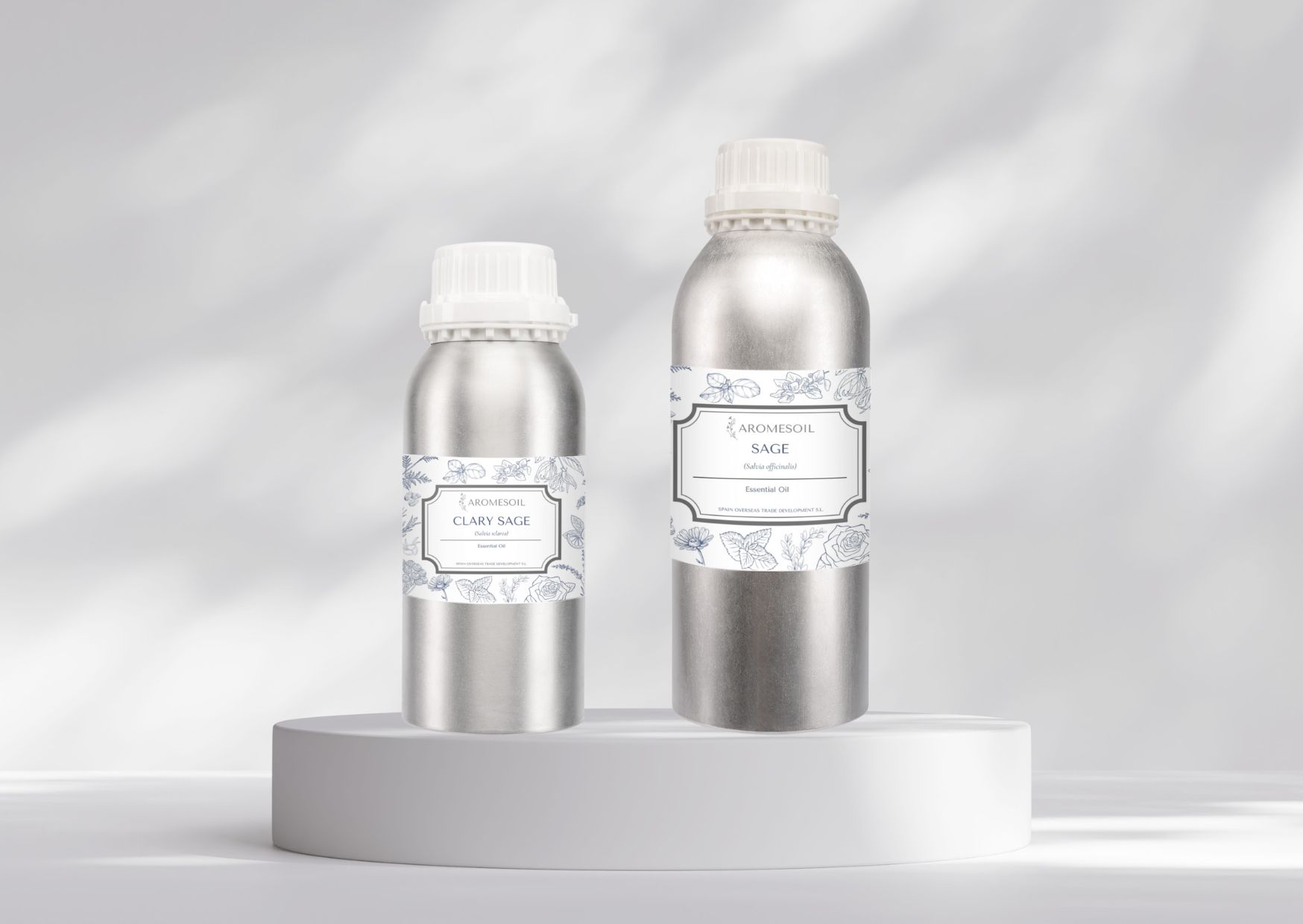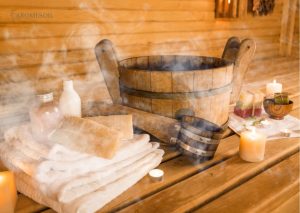Both Sage (Salvia officinalis) and Clary Sage (Salvia sclarea) essential oils belong to the same botanical family—Lamiaceae—but their aroma, composition, and applications differ significantly. Understanding the difference between sage and clary sage can help you select the right oil for your cosmetic or aromatherapy needs.
What’s the Difference Between Sage and Clary Sage Essential Oils?
Origins and Extraction Processes
Sage essential oil is steam-distilled from the leaves of Salvia officinalis, a plant native to the Mediterranean region.
Clary Sage essential oil, on the other hand, is distilled from the flowering tops and leaves of Salvia sclarea, which grows mainly in southern Europe.
Both oils are produced through steam distillation, ensuring purity and concentration of natural aromatic compounds.
Aromatic Profiles
- Sage Essential Oil: Has a strong, herbal, camphorous aroma with sharp, spicy undertones.
- Clary Sage Essential Oil: Offers a softer, floral, earthy, and slightly sweet scent, often described as calming and balancing.
Characteristics
| Feature | Sage (Salvia officinalis) | Clary Sage (Salvia sclarea) |
| Botanical Family | Lamiaceae | Lamiaceae |
| Part Used | Leaves | Flowering tops & leaves |
| Extraction | Steam Distillation | Steam Distillation |
| Aroma | Strong, herbaceous, camphoraceous | Sweet, floral, musky |
| Main Constituents | Thujone, camphor, 1,8-cineole | Linalyl acetate, linalool, geraniol |
Uses and Application
In cosmetics and personal care formulations, both oils are valued for their aromatic and skin-conditioning properties.
- Sage essential oil is commonly added in cleansing and purifying products such as soaps, shampoos, and toners.
- Clary Sage essential oil is frequently used in soothing and balancing formulations for skin and hair, including serums, creams, and aromatherapy blends.
⚠️ Note: Essential oils are not intended to diagnose, treat, cure, or prevent any disease. Always dilute before topical use and perform a patch test.
Main Benefits
- Sage Essential Oil: Traditionally known for its clarifying, refreshing, and toning effects in skincare formulations.
- Clary Sage Essential Oil: Valued for its calming and balancing aroma, often used in wellness and relaxation blends.
Both oils may enhance cosmetic formulations through their natural aromatic and astringent properties.
Safety and Precautions
According to the FDA cosmetic labeling guidelines, essential oils must be used in accordance with good manufacturing practices.
- Avoid direct ingestion.
- Dilute properly before skin application (typically ≤1% concentration).
- Keep out of reach of children.
- Not recommended during pregnancy without professional guidance.
Chemical Profile
- Sage (Salvia officinalis): Contains thujone, camphor, and 1,8-cineole—responsible for its sharp aroma and invigorating feel.
- Clary Sage (Salvia sclarea): Rich in linalyl acetate and linalool, which contribute to its gentle, floral fragrance and soothing character.
Is Sage the Same Thing as Clary Sage?
No—Sage and Clary Sage are different species with distinct chemical compositions, aromas, and recommended uses. While both come from the Salvia genus, Sage is more stimulating, while Clary Sage offers a softer, more relaxing profile.
How to Choose Between Sage and Clary Sage
- Choose Sage essential oil if you need a refreshing, purifying scent for soaps, diffusers, or cleansing formulas.
- Choose Clary Sage essential oil if you prefer a balancing, floral aroma suitable for relaxation or skincare.
Selecting between the two depends on your desired aroma and formulation goals.
Shop Pure Essential Oils at Aromesoil
Discover 100% pure and natural Sage and Clary Sage essential oils at Aromesoil, your trusted source for ethically sourced botanicals.



